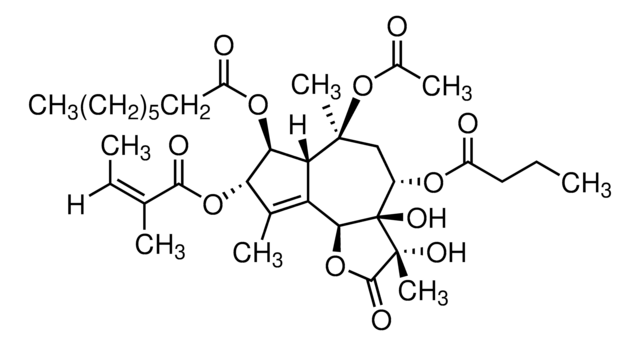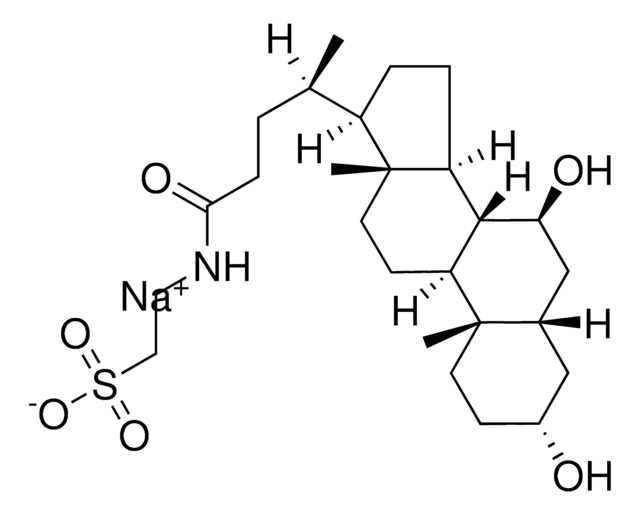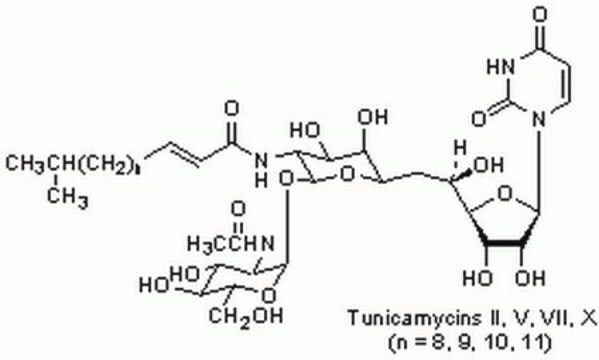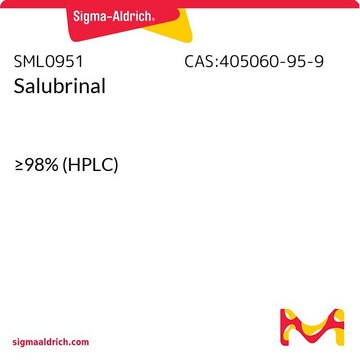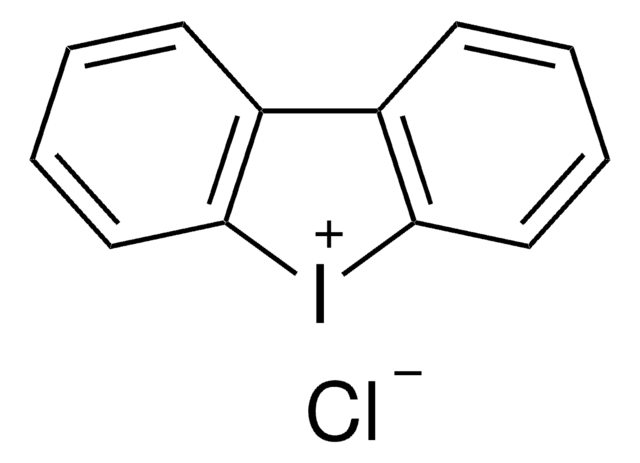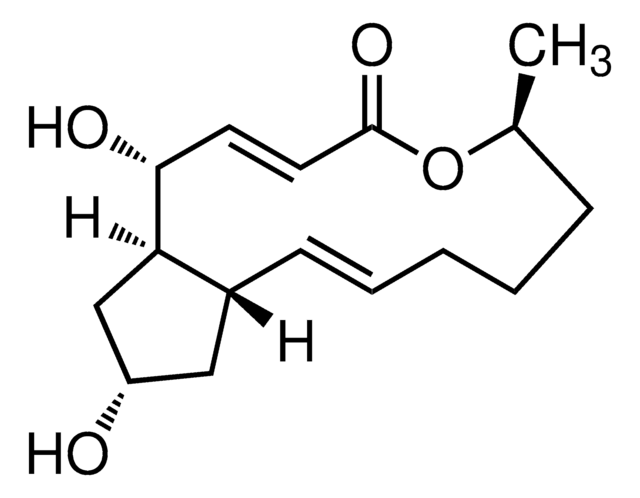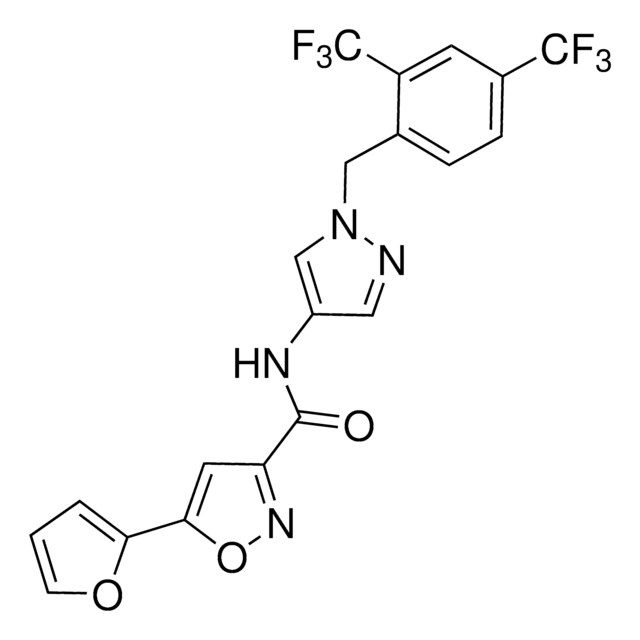SML1287
Tunicamycin
from Streptomyces sp., ≥98% (HPLC), DMSO solution, N-acetylglucosamine transferase inhibitor
About This Item
Recommended Products
Product Name
Tunicamycin Ready Made Solution, 5 mg/mL in DMSO, from Streptomyces sp.
biological source
Streptomyces sp.
Quality Level
form
DMSO solution
concentration
5 mg/mL in DMSO
storage temp.
2-8°C
InChI
1S/C30H46N4O16/c1-11(2)5-4-6-16(38)32-19-23(43)20(40)14(47-29(19)50-28-18(31-12(3)36)22(42)21(41)15(10-35)48-28)9-13(37)26-24(44)25(45)27(49-26)34-8-7-17(39)33-30(34)46/h4,6-8,11,13-15,18-29,35,37,40-45H,5,9-10H2,1-3H3,(H,31,36)(H,32,38)(H,33,39,46)/b6-4+/t13?,14-,15-,18-,19-,20+,21-,22-,23-,24+,25-,26-,27-,28-,29-/m1/s1
InChI key
ZHSGGJXRNHWHRS-PEALBESXSA-N
General description
Application
Biochem/physiol Actions
Storage Class Code
10 - Combustible liquids
WGK
WGK 1
Flash Point(F)
188.6 °F
Flash Point(C)
87 °C
Choose from one of the most recent versions:
Already Own This Product?
Find documentation for the products that you have recently purchased in the Document Library.
Customers Also Viewed
Our team of scientists has experience in all areas of research including Life Science, Material Science, Chemical Synthesis, Chromatography, Analytical and many others.
Contact Technical Service
